What to Know
If you are a Shih Tzu owner or thinking of getting a Shih Tzu, understanding their weight is important. Shih Tzus are a small breed of dog that originated in China and were originally bred as companion dogs for Chinese royalty. They are known for their long, flowing coats, adorable faces, and affectionate personalities.
As with any breed, Shih Tzus have specific characteristics and requirements that need to be met to ensure their health and happiness. One of these characteristics is their weight. Knowing how much a Shih Tzu should weigh at different stages of their life is essential for their overall well-being. In this article, we will discuss everything you need to know about Shih Tzu weight, from growth and development to weight management, diet, and exercise.
Key Takeaways
- Understanding your Shih Tzu’s weight is important for their overall health and well-being.
- Shih Tzus are a small breed of dog that originated in China and were bred as companion dogs for Chinese royalty.
- Knowing how much a Shih Tzu should weigh at different stages of their life is essential for their health and happiness.
Shih Tzu Origins

If you’re interested in Shih Tzu weight, it’s important to understand the breed’s origins. The Shih Tzu is an ancient dog breed that originated in China, specifically in the Tibetan Plateau. They were highly valued by Chinese emperors and royalty, who kept them as lap dogs and companions.
The name “Shih Tzu” means “lion dog” in Chinese, which is fitting given their regal appearance and long, flowing coat. In fact, the Shih Tzu was bred to resemble the lion, which was considered a sacred animal in ancient China. Their coat was also designed to resemble the mane of a lion.
The Shih Tzu was first introduced to the western world in the 1930s, and it quickly became a popular breed due to its charming personality and adorable appearance. Today, the Shih Tzu is a beloved companion dog that is known for its loyalty, affection, and playful nature.
While the Shih Tzu’s origins are rooted in China, the breed has also been associated with Tibet. The Tibetan Plateau is known for its harsh climate, and the Shih Tzu was bred to withstand the cold temperatures and high altitudes of the region. In fact, the Shih Tzu is believed to be a descendant of the Lhasa Apso, another Tibetan dog breed.
In conclusion, the Shih Tzu is a fascinating breed with a rich history that spans centuries. Whether you’re interested in their weight, personality, or appearance, understanding their origins is key to appreciating their unique qualities.
Breed Characteristics
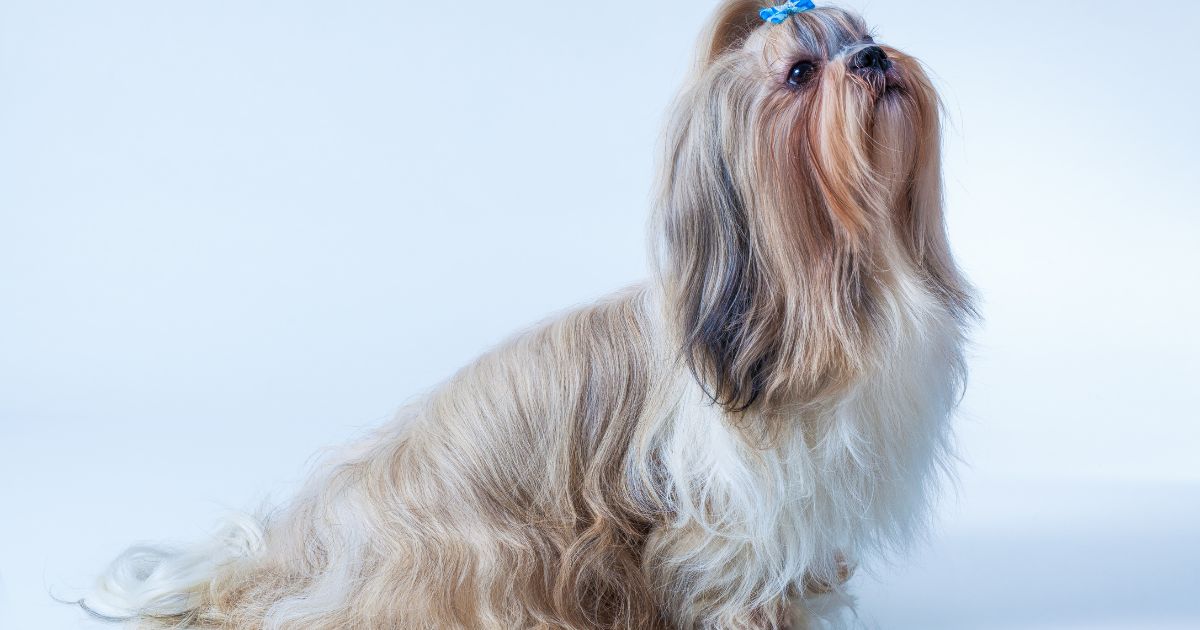
When it comes to Shih Tzus, there are a few distinct characteristics that set them apart from other dog breeds. Here are some of the key features of this beloved breed:
Size and Weight
Shih Tzus are a small breed, typically weighing between 9-16 pounds and standing 9-10.5 inches tall at the shoulder. As such, they are well-suited to apartment living and do not require a lot of space to be happy.
Coat
One of the most distinctive features of the Shih Tzu is their long, flowing coat. This double coat is made up of a soft, woolly undercoat and a longer, silky topcoat. While beautiful, this coat requires regular grooming to keep it looking its best.
Muzzle and Ears
Shih Tzus have a short, broad muzzle and large, floppy ears that hang down on either side of their head. These features give the breed a distinctive, adorable look that is beloved by many.
Colors
Shih Tzus come in a wide variety of colors, including black, white, gold, and silver. Some dogs may also have a combination of these colors, such as black and white or gold and white.
Health
Like all breeds, Shih Tzus are prone to certain health conditions. These can include eye problems, ear infections, and respiratory issues. It is important to keep up with regular vet visits and to monitor your dog’s health closely to catch any potential issues early on.
Overall, the Shih Tzu is a beloved breed known for their small size, long coat, and adorable features. If you are considering adding a Shih Tzu to your family, be sure to do your research and make sure that this breed is the right fit for your lifestyle and needs.
Growth and Development

When it comes to Shih Tzu puppies, their growth and development is a crucial aspect to keep in mind. From birth to adulthood, there are several milestones that your puppy will go through. Understanding these milestones can help you ensure that your puppy is growing and developing properly.
At birth, Shih Tzu puppies weigh around 6 ounces and have an undeveloped nervous system. They are born with their eyes shut tight and their ear canals closed. It is important to note that during the first two weeks of their life, they will not be able to see or hear anything. They have a strong instinct to burrow and hide and to suck – all necessary for survival.
As your puppy reaches three weeks of age, their eyes and ears will begin to open. They will start to become more mobile and will begin to explore their surroundings. By 12 weeks of age, your puppy will be more active and playful. They will also start to lose their baby teeth and their adult teeth will begin to come in.
Shih Tzu puppies are considered small breed or toy breed dogs, so you do not have to expect any massive growth spurts throughout the first year of their life. However, it’s always good to have an idea of what’s ahead for your Shih Tzu as they grow out of puppyhood. Most six-month-old Shih Tzus will weigh between 7 and 12 pounds, and many Shih Tzus will already be at their full adult height, which is usually between 9 and 10.5 inches tall.
Like many toy dog breeds, the Shih Tzu reaches maturity more quickly around ten months old. Some Shih Tzu puppies may take an entire year to reach their full adult size, but you can expect your Shih Tzu to be at their adult size or very close to it, around ten months of age. It is important to keep track of your Shih Tzu’s growth and weight, as it can help you ensure that they are healthy and developing properly. You can use a Shih Tzu growth and weight chart to keep track of your puppy’s growth and development over time.
Shih Tzu Weight Management
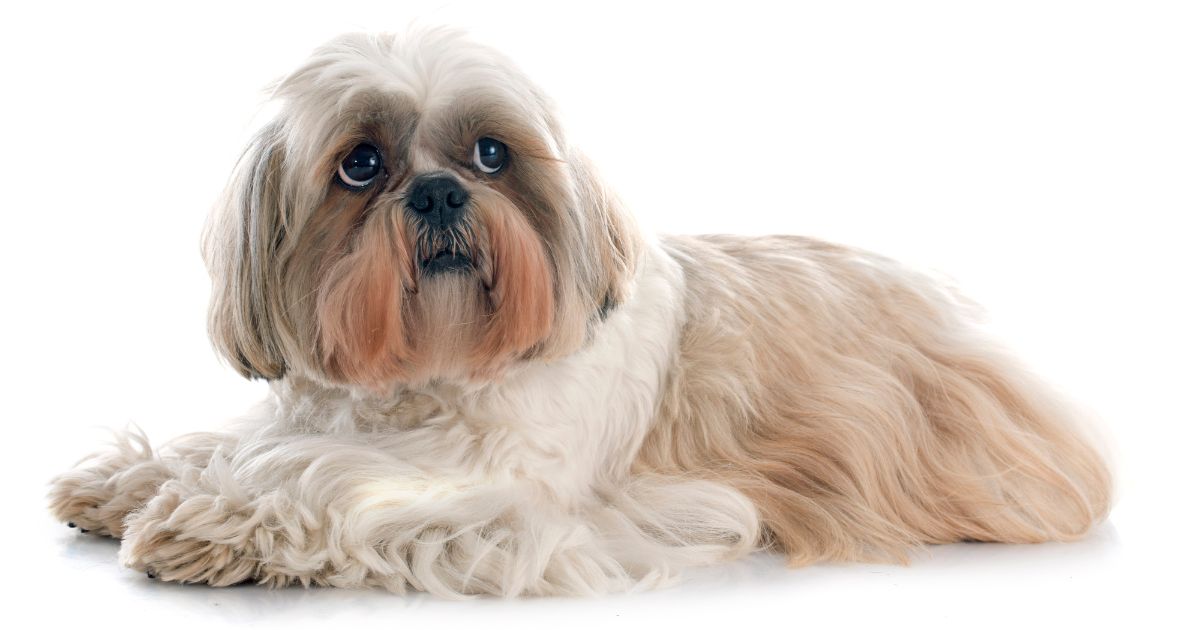
Maintaining a healthy weight is crucial for your Shih Tzu’s overall health. A Shih Tzu typically weighs between 9 to 16 pounds (4 – 7.25 kg). However, individual results may vary due to genetics, gender, or body structure factors.
It’s important to monitor your Shih Tzu’s weight regularly. A body condition score (BCS) can help you determine if your dog is overweight, underweight, or at an ideal weight. A BCS of 5 is considered ideal, with the ribs easily felt and a slight waist visible when viewed from above.
If your Shih Tzu is overweight, it’s important to take steps to help them lose weight. Obesity can lead to health issues such as joint problems, heart disease, and diabetes. Consult a professional if your Shih Tzu has a weight problem.
To help your Shih Tzu lose weight, you can adjust their diet and increase their exercise. Your veterinarian can provide recommendations on the appropriate amount and type of food to feed your dog, as well as a safe exercise plan.
On the other hand, if your Shih Tzu is underweight, consult your veterinarian to rule out any underlying health issues. They may recommend a diet with higher calorie content or additional feedings throughout the day.
It’s important to note that puppy growth isn’t linear, and every dog’s exact weight journey will be different. However, as a general guideline, at one month old, your puppy should be around 10% of their adult weight, and by 4 months, they should be around half of their adult weight.
In summary, monitoring your Shih Tzu’s weight regularly and maintaining an ideal weight through diet and exercise can help ensure their overall health and well-being. Consult your veterinarian if you have any concerns about your Shih Tzu’s weight.
Diet and Exercise
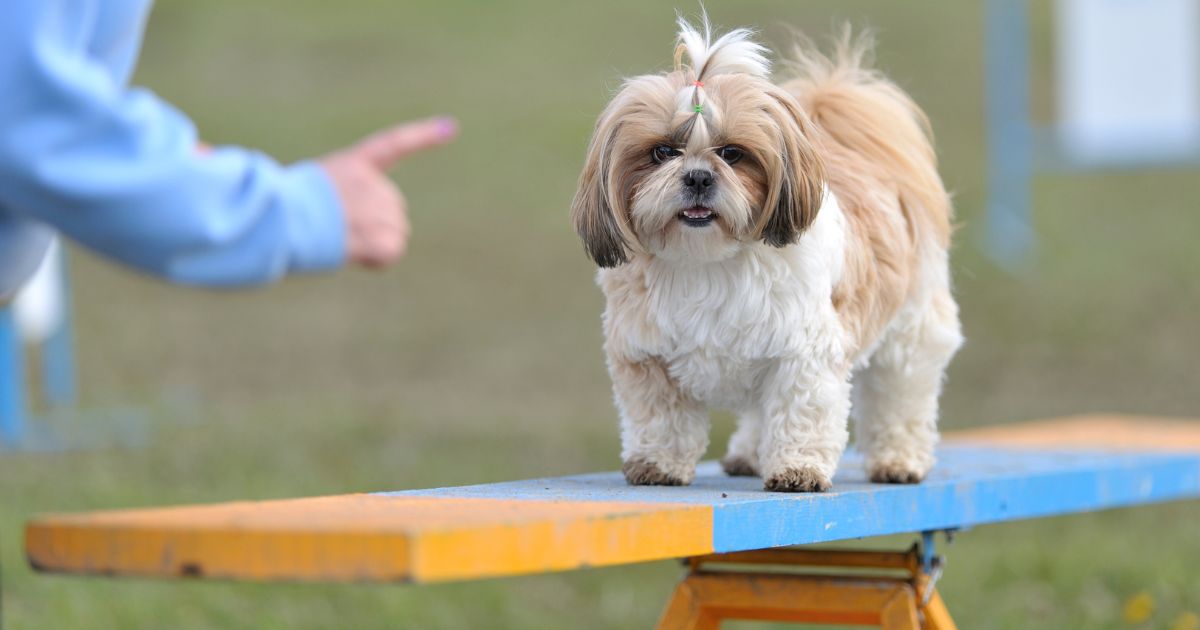
Maintaining a healthy weight is crucial for your Shih Tzu’s overall health and wellbeing. A balanced diet and regular exercise can help prevent obesity, which can lead to various health problems such as joint issues, heart disease, and diabetes.
When it comes to diet, it’s important to feed your Shih Tzu a high-quality, balanced diet that meets their nutritional needs. A balanced diet should include protein, carbohydrates, essential fatty acids, and vitamins and minerals. You can consult with your veterinarian to determine the best diet for your Shih Tzu based on their age, weight, and activity level.
Overfeeding is a common problem among Shih Tzus, so it’s important to monitor their food intake and avoid giving them table scraps or treats that are high in calories. You should also make sure that your Shih Tzu has access to fresh water at all times.
In addition to a balanced diet, regular exercise is essential for your Shih Tzu’s health. Exercise can help maintain a healthy weight, improve muscle tone, and reduce the risk of health problems. Taking your Shih Tzu for daily walks is a great way to provide them with exercise and mental stimulation. Aim for at least 30 minutes of exercise per day, but be sure to adjust the duration and intensity based on your Shih Tzu’s age, weight, and activity level.
In conclusion, a balanced diet and regular exercise are crucial for maintaining your Shih Tzu’s health and preventing obesity. By providing your Shih Tzu with a nutritious diet and plenty of opportunities for exercise, you can help ensure that they live a long and healthy life.
Health Concerns

As with any breed, Shih Tzus are prone to certain health concerns that you should be aware of as a responsible owner. Regular visits to a veterinarian can help identify and treat any potential issues early on.
Shih Tzus are a brachycephalic breed, which means they have a short snout and flat face. This can lead to respiratory problems, especially in hot weather or during exercise. Keep your Shih Tzu cool and avoid overexertion to prevent breathing difficulties.
Eye problems are also common in this breed, including cataracts, corneal ulcers, and dry eye. Regular cleaning and grooming can help prevent eye infections, and prompt veterinary care can prevent more serious eye issues.
Ear infections are another concern for Shih Tzus, due to their long, floppy ears that can trap moisture and debris. Keep your Shih Tzu’s ears clean and dry to prevent infections, and seek veterinary care if you notice any signs of discomfort or discharge.
Overall, it’s important to be aware of the potential health issues that can affect your Shih Tzu and to seek veterinary care promptly if you notice any signs of illness or discomfort. With proper care and attention, your Shih Tzu can live a happy, healthy life.
Grooming Needs
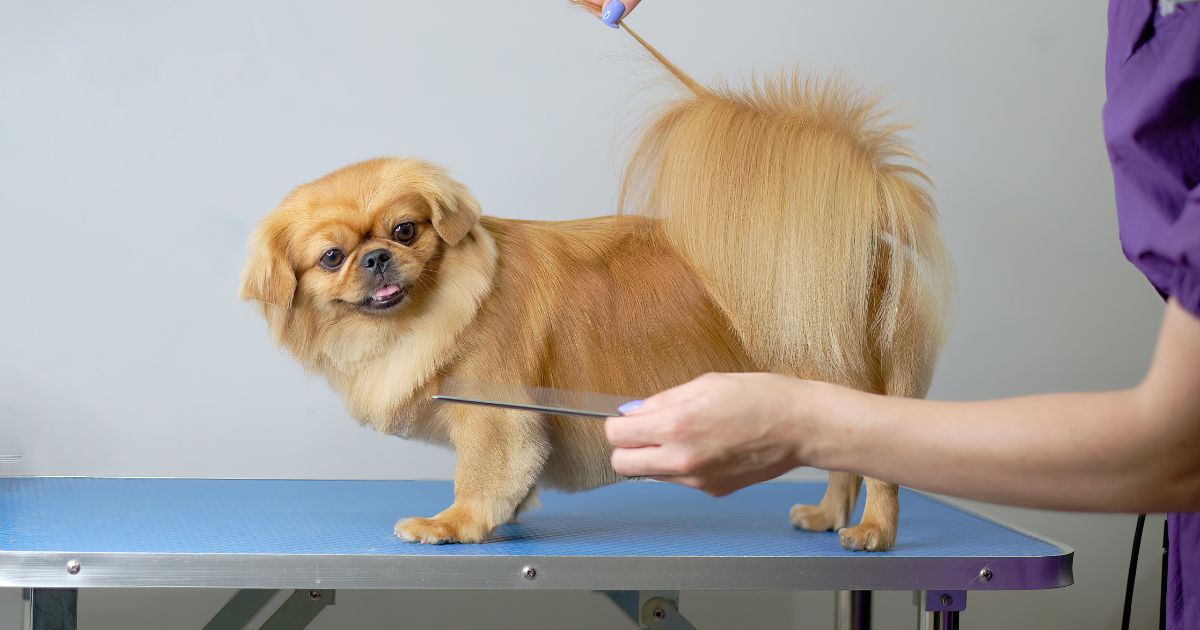
Grooming your Shih Tzu is essential to keep them looking their best and to maintain their overall health and hygiene. Here are some grooming needs you should be aware of:
Coat
Shih Tzus have a long, flowing coat that requires regular brushing to prevent matting and tangling. Use a slicker brush to remove loose hair and tangles from your dog’s coat. You should brush your Shih Tzu at least once a day, but ideally, you should do it twice a day. A metal comb can be used to remove any remaining tangles.
Bath
Bathing your Shih Tzu is also important to keep them clean and smelling fresh. However, too much bathing can strip their coat of natural oils, so it’s recommended to bathe them once every three weeks or so. Use a dog-specific shampoo and conditioner to keep their coat healthy and shiny.
Nails
Trimming your Shih Tzu’s nails is important to prevent them from getting too long and causing discomfort or even pain. You should trim their nails every two to three weeks. If you’re not comfortable doing it yourself, take them to a professional groomer or veterinarian.
Grooming
Grooming your Shih Tzu goes beyond just brushing and bathing. You should also check their ears regularly for signs of infection or irritation and clean them with a damp cloth. Additionally, you should brush their teeth daily to prevent dental problems.
Hygiene
Maintaining your Shih Tzu’s hygiene is crucial for their overall health. Keep their eyes clean with a damp cloth, and trim the hair around their eyes to prevent irritation. Also, clean their genital area regularly to prevent infections.
By following these grooming needs, you can keep your Shih Tzu looking and feeling their best. Regular grooming can also help you detect any health issues early on, so you can take action before they become more serious.
Temperament and Behavior
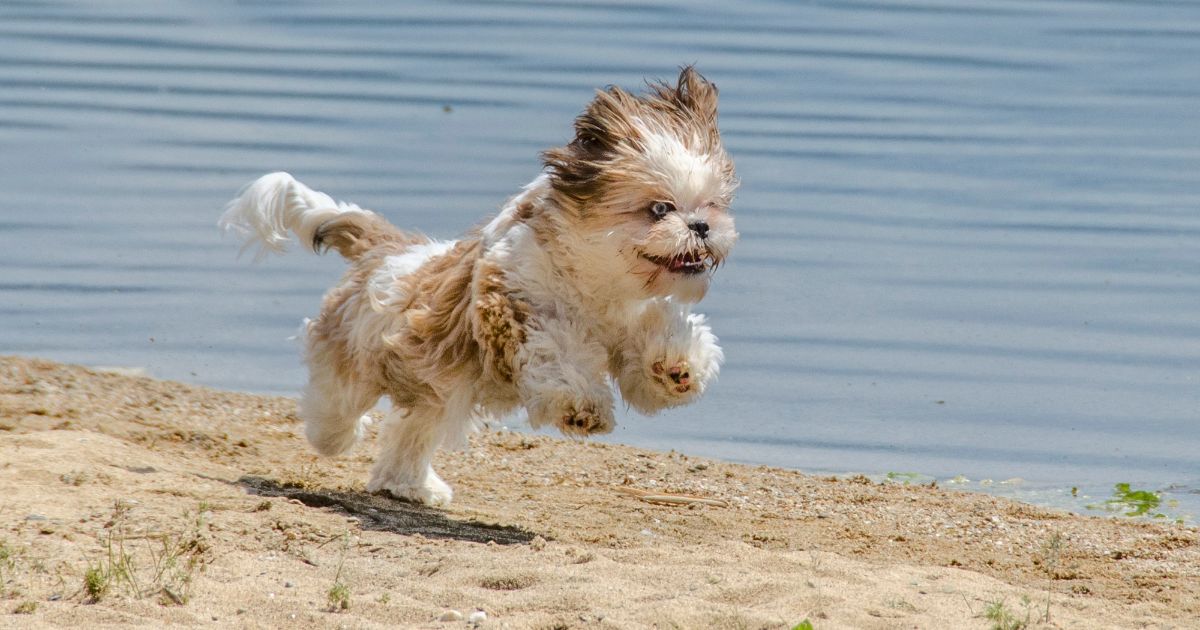
Shih Tzus are known for being a great companion dog due to their friendly and outgoing nature. They are lively and playful, making them a great addition to any household. Their temperament is generally calm and affectionate, making them an ideal lap dog.
It is important to socialize your Shih Tzu from a young age to ensure they are comfortable around other dogs and people. This will help prevent any aggressive behavior later on.
Shih Tzus are generally easy to train and have a good level of obedience. They are not typically used for agility training due to their small size, but they can still learn a variety of tricks and commands.
It is important to note that Shih Tzus can be prone to separation anxiety if left alone for too long. They thrive on human interaction and may become destructive if left alone for extended periods of time.
Overall, Shih Tzus make wonderful companions due to their friendly and affectionate nature. With proper socialization and training, they can be a well-behaved and obedient addition to any household.
Training and Socialization
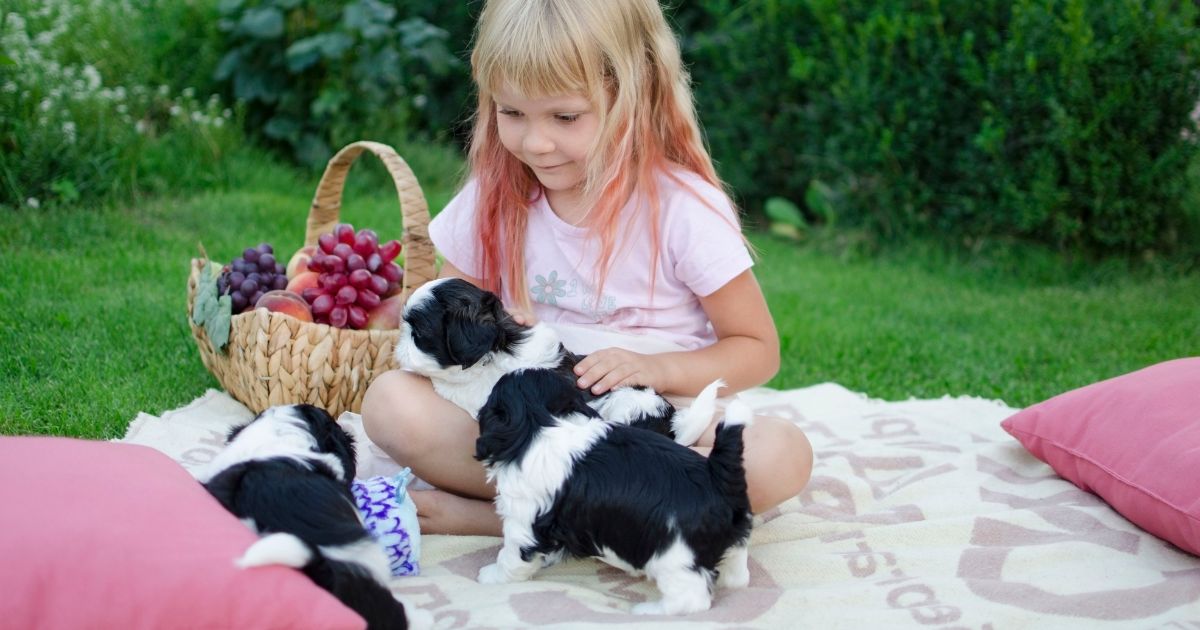
Training and socialization are essential for your Shih Tzu’s growth and development. Proper training will ensure your pup is well-behaved and obedient, while socialization will help them become comfortable around other dogs and people.
When it comes to training your Shih Tzu, consistency is key. Start with basic commands like “sit,” “stay,” and “come.” Use positive reinforcement techniques such as treats and praise to encourage good behavior. It’s important to keep training sessions short and frequent to avoid overwhelming your pup.
Shih Tzus can be great with children, but it’s important to teach both your child and your pup how to interact with each other. Teach your child to be gentle and respectful of your Shih Tzu, and supervise all interactions between them. Your Shih Tzu should also be trained to be comfortable around children and to understand that they are not a threat.
Socialization is also important for your Shih Tzu’s development. Expose your pup to different environments, people, and animals to help them become comfortable and confident in new situations. Socialization can help prevent behavioral issues such as aggression and anxiety.
In summary, training and socialization are crucial for your Shih Tzu’s growth and development. Consistent training, positive reinforcement, and socialization will help your pup become a well-behaved and confident companion.
Choosing a Shih Tzu

If you are looking to add a Shih Tzu to your family, there are a few things to consider when choosing the right one. Whether you plan to adopt or buy from a breeder, it’s important to do your research and make an informed decision.
When choosing a breeder, look for one who is reputable and follows ethical breeding practices. You can check with the American Kennel Club (AKC) for a list of breeders in your area. A good breeder will provide you with information on the puppy’s parents and any health issues that may run in the family. They should also be willing to answer any questions you have and provide you with guidance on how to care for your new puppy.
If you decide to adopt, there are many Shih Tzus in shelters and rescue organizations that are in need of loving homes. Adopting a dog can be a great way to give a pet a second chance at a happy life.
When choosing a Shih Tzu, consider the size and weight of the dog. According to Shih Tzu Advice, a healthy Shih Tzu between 9 and 10.5 inches at the shoulder should weigh between 9 and 16 pounds. Keep in mind that every dog is unique and may fall outside of this range.
It’s also important to consider the potential veterinary bills associated with owning a Shih Tzu. These dogs are prone to certain health issues, such as eye problems and respiratory issues. Regular check-ups and preventative care can help keep your dog healthy and catch any issues early on.
In summary, when choosing a Shih Tzu, do your research and make an informed decision. Consider the breeder or adoption organization, the size and weight of the dog, and the potential veterinary bills. With the right care and attention, a Shih Tzu can make a wonderful addition to your family.
Before You Go
Understanding the ideal weight range for your Shih Tzu is crucial for their health and happiness. While genetics and gender can play a role in determining your dog’s weight, it is ultimately up to you to ensure they are maintaining a healthy weight.
By feeding your Shih Tzu a balanced diet and providing them with regular exercise, you can help them maintain a healthy weight and prevent health issues associated with obesity. Remember to consult with your veterinarian for advice on your dog’s ideal weight range and any dietary or exercise adjustments that may be necessary.
Overall, a happy and healthy Shih Tzu is a well-cared-for Shih Tzu. By paying attention to their weight and taking steps to maintain it, you can ensure that your furry friend lives a long and happy life by your side.
FAQs
What is the normal weight for a 3-month-old Shih Tzu?
At 3 months old, a Shih Tzu puppy should weigh between 2 and 4 pounds. However, it’s important to remember that every puppy is different and may grow at their own pace.
What is the average weight of an adult Shih Tzu?
An adult Shih Tzu should weigh between 9 and 16 pounds, according to Raised Right Pets. However, it’s important to note that some Shih Tzus may weigh less or more than this range.
What is the full-grown size of a Shih Tzu?
The full-grown size of a Shih Tzu is usually between 9 and 10.5 inches tall at the shoulder, according to Pawlicy Advisor.
What is the healthy weight range for a Shih Tzu?
The healthy weight range for a Shih Tzu is between 9 and 16 pounds, according to Your Purebred Puppy. However, it’s important to remember that every dog is different and may have their own healthy weight range based on their individual needs and lifestyle.
How much should a full-grown Shih Tzu weigh?
A full-grown Shih Tzu should weigh between 9 and 16 pounds, according to Shih Tzu Pedia. However, it’s important to note that some Shih Tzus may weigh less or more than this range.
Is my Shih Tzu overweight?
To determine if your Shih Tzu is overweight, you can try feeling their ribs. You should be able to feel their ribs without pressing too hard, but they should not be visible. Additionally, if your Shih Tzu has a waistline and an hourglass shape when viewed from above, they are likely at a healthy weight. If you are unsure if your Shih Tzu is overweight, it’s always best to consult with your veterinarian.

